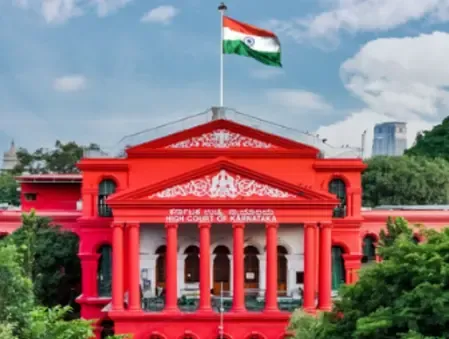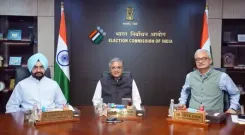Should the Karnataka HC Share the Bengaluru Stampede Report with KSCA, RCB, and DNA?

Synopsis
Key Takeaways
- Karnataka High Court mandates transparency regarding the stampede report.
- The report will be shared with key stakeholders including KSCA and RCB.
- Legal arguments highlight the tension between confidentiality and public interest.
- Judicial processes require openness to allow affected parties to present their views.
- Transparency is essential in maintaining public trust in the judicial system.
Bengaluru, July 15 (NationPress) The Karnataka High Court has directed the state government to release the report concerning the Bengaluru stampede to the Karnataka State Cricket Association (KSCA), Royal Challengers Bengaluru (RCB), and DNA Entertainment Networks.
The bench, led by Acting Chief Justice V. Kameshwar Rao and Justice C. M. Joshi, instructed the state to supply the report, including translations, to the aforementioned entities, dismissing the government’s rationale for keeping the report under wraps.
The court noted that the situation does not pertain to public interest, national security, or individual rights, emphasizing that the sealed cover only contained the government's interpretation of the status report.
Advocate General Shashi Kiran Shetty had previously requested the court to maintain the report’s confidentiality for a limited time, arguing that its contents could affect the conclusions of the ongoing magisterial and judicial commissions.
Amicus Curiae S. Susheela, however, contested this request, highlighting the significant delays already experienced and questioning the legal grounds for keeping the report from public view without sufficient justification.
She asserted, "Our justice system does not endorse the state’s intent to postpone disclosure by 10-15 days; it must uphold transparency."
Furthermore, she pointed out that since only the court and the state have access to the report, considerations of proportionality, reasonableness, and public confidentiality must be thoroughly evaluated.
The bench concluded that there was no justifiable reason to await the findings of the magisterial or judicial commissions, asserting that the inquiries’ heads—a retired High Court judge and an All India Service Officer—would not be swayed by the government’s report.
The court ultimately determined that sharing the sealed report with the respondents would facilitate a better understanding of the events and grant them a fair chance to explain the circumstances leading to the stampede.







